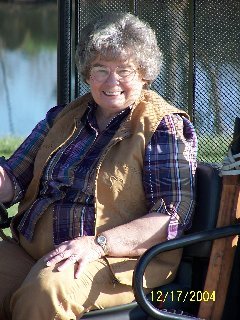We have been enjoying luscious red ripe tomatoes with almost every meal. Unlike our special friend Helen Green Galloway, 87, who likes vine-ripe tomatoes with milk gravy, we don’t eat them for breakfast. They taste good to us with all other meals, however.
I filled up three sacks today and took to Katherine’s house for her and two of her aides. We took tomatoes to the brothers and wives last Friday night, and Gerald has taken some to neighbors. In the old days, I would have been canning tomato juice, but I have not canned in many years. I keep thinking someday I will again, but I probably won’t. (I did finally pass my pressure canner on to a neighbor.) Life seems too full already without canning. Gerald cut back his garden to just green onions--already gone now-- and the tomatoes, so I haven’t even had okra to put in the freezer. (I am afraid my family is going to be very disappointed this winter.)
My planned task for today was to make phone calls for my daughter Katherine to line up interviews for home health aides. The long list from a government agency of possible people gave me more disconnected phones than working ones. More and more people are cutting out their land phones and just using cells. I still like using the house phone more than my cell, which I am always misplacing, but it will be interesting to see if the custom of house phones survive in a few more years. At least today’s families don’t have to fret about their kids tying up the house phone—as my parents did and as I did when we had teens living with us.
As I called the listings, I left several messages on message machines—but some without answering machines called me back because they had caller ID. Some phones I called greeted me with music (including the call I made to granddaughter Erin), some were answered by the new owner of a phone number instead of the person I was trying to call and they were very polite even though I had bothered them unnecessarily. Many answered quite formally, and one recorded voice said: You know the routine, leave a message. Some who answered had pleasant cultivated voices and others were strident. Some, who were working elsewhere now, were very brief and business-like; some in the same circumstances were chatty. Some recommended others.
I also was reviewing today the many page report of an archeological study of Mark Wagner of the east side of the Mississippi River at the time of the Cherokee Removal in 1838-39. There in Union County was where the thousands of Cherokee had to take ferries day after day to reach the other side when the large ice floes finally allowed them to cross to Missouri. I had studied the report once before, but enough time had passed that I was no longer positive of some points. So I am re-reading it. Although the river has changed radically since then, the report opined that it might be possible yet to find archeological evidence of Willard’s Landing and Hamburg Landing, both of which once were located on the river’s bank. They provided ferries to cross the river as well as a landing for steamboats from Pennsylvania to bring goods down the Ohio and up the Mississippi to Union County or a place to load flatboats with excess farm produce to sell down in New Orleans.
It is interesting to look at the old maps of the river’s edge and see the changes from decade to decade. In the very earliest days of white pioneers, few acres in the bottoms could be cultivated because of the floods, but now most of the rich land near the river is well drained and growing productive crops.
Woods between the highway and the river make viewing the river impossible most of the time. The same is usually true when you drive off the highway and onto levee roads with fields and trees between the road and the river. Many years ago when we lived and farmed on one side of the 20th century levee in Union County, I would always feel I was definitely living on the river when the water rose against the levee. Other times I could forget that.
Although we were never threatened with the river going over nor the levee breaking during our three years there, nevertheless, driving with the river against the levee seemed very dramatic to me. I drove carefully at those times. One of my favorite memories is when the water was not high and we borrowed our landlord’s little pickup and took Katherine and Gerry for a picnic over by the river on the other side of the levee from our house. My brother’s family at that time lived across the river in Cape Girardeau, and I liked seeing the lights there and knowing they were just on the other side from us.
Old Man River dividing our nation in half is a fascinating phenomenon. Powerful and capable of being devastating down through the years. Yet most of the time, serenely lovely and peacefully soothing.
Yorktown Virginia
-
On Sunday, after our museum day, Wesley and I drove to Yorktown Va. I am
so glad we ventured out looking for a waterfront on this trip. I had to
mercha...
5 years ago












No comments:
Post a Comment